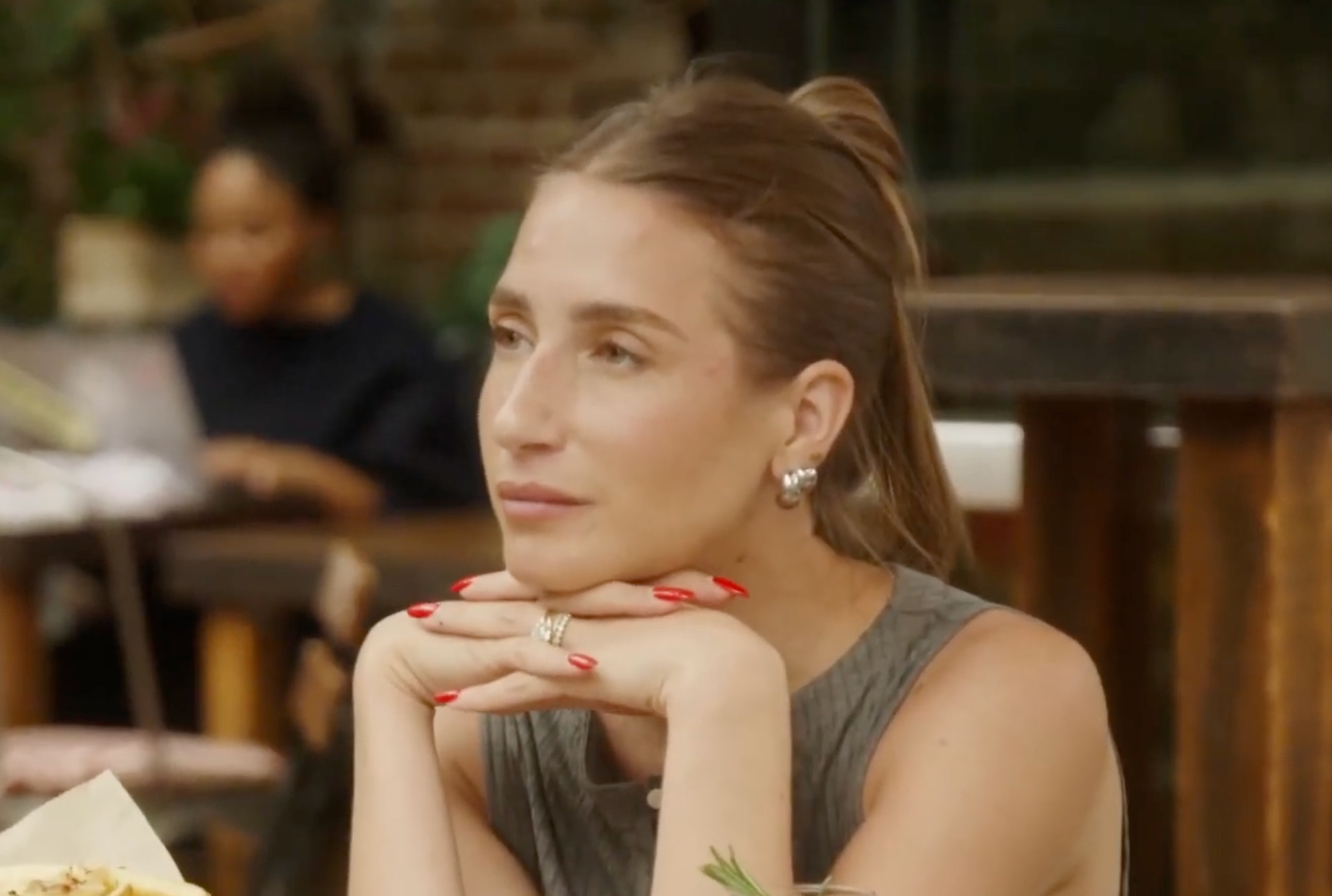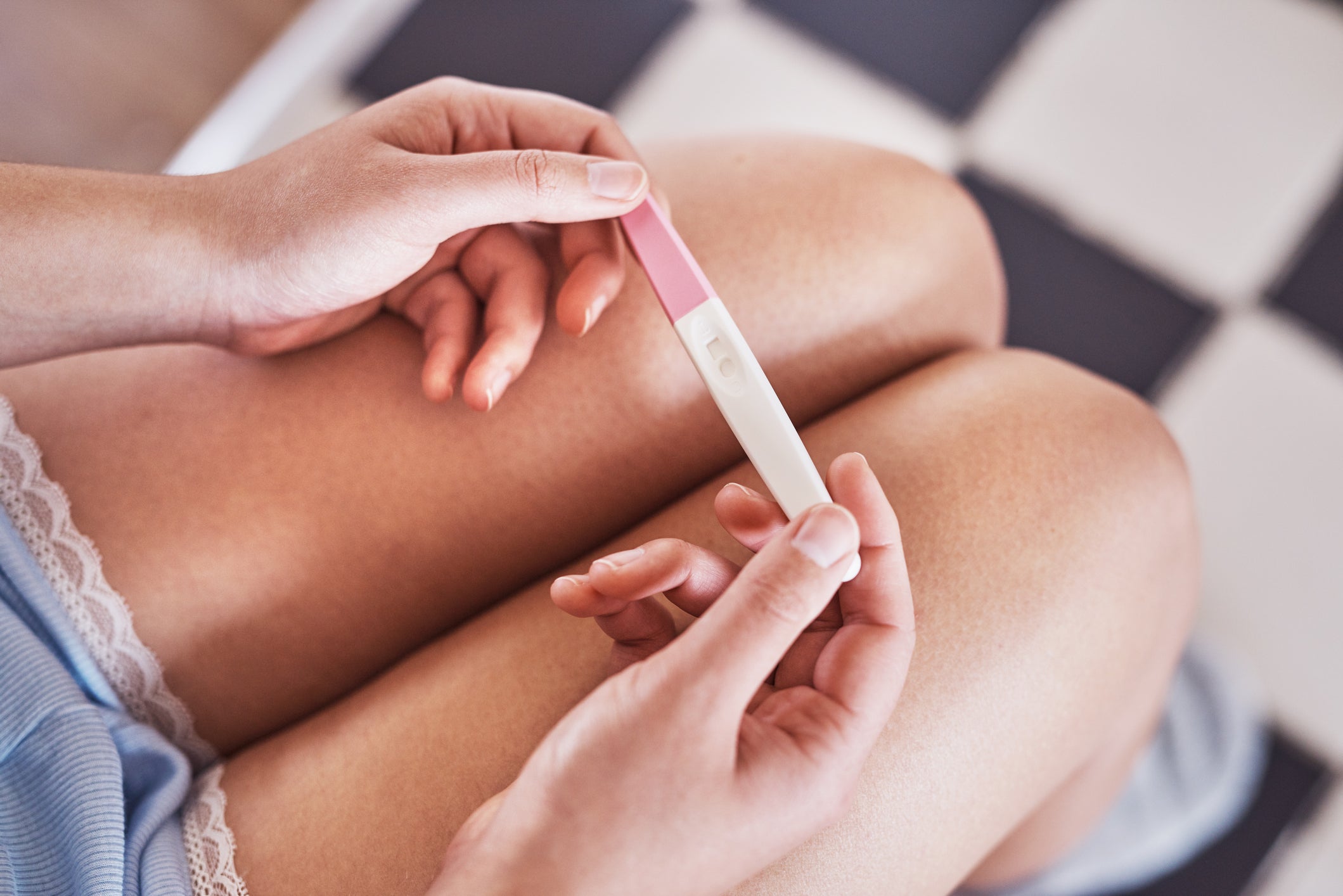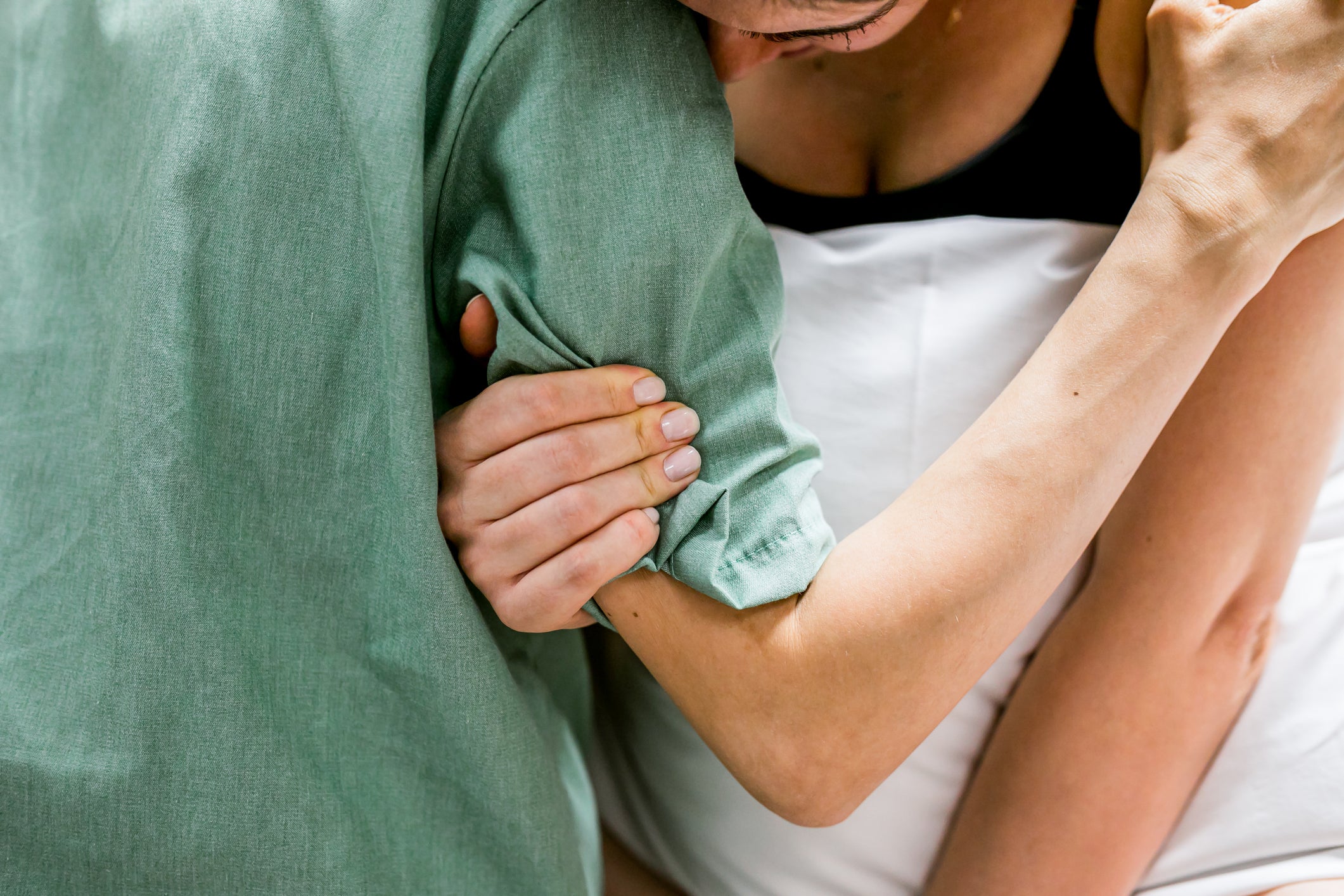There are myriad reasons why having a baby doesn’t seem like a good idea: the cost of living is through the roof, wages are largely stagnant, the UK is one of the most expensive countries in the world for childcare. Plus, babies still appear to require a level of buoyancy and nurturing I’ve only recently learnt how to provide for myself at the childbearing age of 29.
This might sound stupid, but for thousands of people who suffer from anxiety and depression, myself included, these are the facts: being happy can feel like a gruelling daily challenge, low mood and worry strike often, irrational fears and negative self-talk – without treatment – run rampant and ruminate. To sum it up, my stable and cheerful life has been hard won through rounds of CBT therapy, medication, counselling, regular exercise and holistic treatments – and I don’t know if I want a baby to blow that up, ever. Not when I’ve finally found my feet.
Equally, for the imaginary child in question, I don’t want to be a dreary, downbeat mother. That child, whoever they could turn out to be, deserves fun; not to walk timidly around the house worried their actions have caused my unhappiness – whatever form it may have taken that day. That’s not much of a childhood. So with all of this in mind, it came as no surprise to me that research conducted by the Institute for Family Studies in 2022 found that happier women are more likely to have the number of children they want, compared to those who are depressed or anxious.
Unexpectedly, it was a reality TV star who most succinctly summed up my fears recently. Thirty-three-year-old Amanda Batula, a recurring cast member on Bravo’s Hamptons-based reality show Summer House, has openly detailed her struggles with depression – and how antidepressants transformed her life for the better. Yet, when discussing her worries about the prospect of having children with her husband, Kyle Cooke, on camera during the show’s latest season, she said: “Because of how much I’ve been struggling to take care of myself sometimes, I’m like, ‘I’m not suited to take care of something else’. I don’t love that I feel that way – but I think I need to make sure I’m OK.”
This is a valid concern. Pregnancy is rough on the brain. Any pre-existing condition can be exacerbated. Postpartum depression affects more than one in every 10 women within a year of giving birth, according to the NHS. Meanwhile, postpartum psychosis, where symptoms range from low mood and mania to delusions and hallucinations, affects 1,400 women in the UK each year. Overall, one in five of the 600,000 women a year who give birth in the UK experience a mental health condition, NHS figures show, and a quarter have a negative birth experience.
“Pregnancy is probably the biggest test that a human can go through, both in terms of the body and the mind,” says perinatal psychiatrist Dr Livia Martucci. “So, if there’s any kind of vulnerability, it often emerges in pregnancy,” she adds, noting there is an increased risk of becoming mentally unwell again at a time of “increased pressure and stress”, like when expecting a child. “But a risk is all it is – it’s not a certainty,” she says. “Many, many, people stay well … and there are lots of things people can do to maximise their chances.”
Staying mentally healthy during and after pregnancy looks a lot like staying well before it, according to Martucci. Lifestyle factors like getting enough sleep, maintaining a routine, exercising and keeping a work-life balance – although almost laughably impossible with a child – are still just as important. Staying clear of cigarettes, alcohol and nonprescription drugs will also improve mood. And, although hormones can negatively impact people’s emotions, Martucci says they can have “very positive” effects too. “Sometimes people are very pleasantly surprised that they actually feel really well and very settled and happy in pregnancy,” she says. “That is something that does happen – not all of it is going to be very difficult.” A welcome surprise.

Primarily, the most important thing to do when suffering from mental illness during or after pregnancy, according to Martucci, is to get help. This might sound obvious, but for women left exhausted by NHS wait times and the widespread medical misogyny seeping out of the UK health system, contacting doctors in this country can feel futile, so sometimes we handle the problem ourselves – mostly by burying it.
“You do not want those symptoms to linger and bring a negative to an experience that is intense for sure, but should be a happy one,” warns Martucci. “It’s like saying ‘Oh, my blood pressure is a bit high, but I think I’m gonna ignore it and see how it goes.’ Maybe nothing will happen, but you don’t know, do you? So, you don’t want it to turn into something that is harder to recover from.”
Dr Alessia Spennati, a psychiatrist who specialises in antenatal and postnatal depression, as well as postpartum psychosis, perinatal anxiety and birth-related trauma, tells me a particularly alarming story of a woman who suffered from a severe type of anxiety called tokophobia: a pathological fear of giving birth. “This lady had a previous history of anxiety and breakdowns,” Spennati says. “She panicked, started to have severe nausea and vomiting. It sounded like she wasn’t treated appropriately – given counselling or anything – so, things escalated and she decided to have a termination, which is so unfair.” Spennati is now helping the woman to treat her anxiety effectively. “She would still like to become a mother,” she says.
Getting help, according to both Martucci and Spennati, should be quite straightforward. Some women plan ahead, going to see a GP and getting referred for pre-conception counselling a year to six months before they conceive. Others, whose pregnancy is a surprise, will wait for around four weeks to be seen by a specialist in a perinatal unit once they’re referred, they both say. However, not everyone with mental health struggles meets the criteria for these NHS specialised health services. Martucci explains that those with a moderate to severe level of mental illness are admitted, while women who don’t meet the threshold are told to manage their symptoms with help from their GP and, perhaps, a psychologist or therapist, which sometimes is enough.
It’s hard not to receive this information with some level of scepticism. Mental health conditions are the leading cause of maternal death between six weeks and a year after birth in the UK. Postnatal suicide rates rose by more than 50 per cent during the pandemic and have remained high ever since. Although a record 57,000 new and expectant mothers accessed NHS mental health services in 2023 – up a third on the previous year – there remains a postcode lottery in access to NHS treatment. Some women wait up to six months for assessment and up to a year for treatment, a report by the Maternal Mental Health Alliance found last year.

Yet in January, the government announced it was scrapping funding for the nationwide rollout of women’s health hubs, which aimed to improve access to services such as perinatal mental health support. “Some places are funded better than others and have more resources,” admits Professor Eleni Palazidou, a psychiatrist who specialises in mood affective disorders, including depression, mania and bipolar. “But if your local area is resourced enough and the perinatal unit can offer early appointments, you can get to grips with your condition before you become ill. It’s important to do, but it depends what the local services are like and how much they can offer.”
Once you make it into the perinatal ward’s books, the help seems comprehensive. Spennati explains how, at 32 weeks, she takes her patients through a birth plan alongside their midwife, obstetrician, health advisor, and partner to put in writing how the labour is going to go. These are tailored to a patient dependent on their “specific challenges,” Spenatti says. As an example, “If it’s anxiety and they don’t like being overstimulated, we can make sure they’re given a side room. We make sure they’re reviewed postnatally by the mental health team. Really, any adjustment.” But without a time-efficient treatment, there could be unnecessary suffering.
When it comes to antidepressants, the jury still appears to be out. Palazidou explains that after the thalidomide disaster that led to the birth of 10,000 disfigured children worldwide after their mothers were given the catastrophic morning sickness medication, new drugs are no longer trialled on pregnant women, meaning they rely on reports from women who had to be on medication then had a baby to monitor its safety and effectiveness. “In the last 20 to 30 years, we’ve been using more SSRIs [selective serotonin reuptake inhibitors],” she says. “They were deemed safe and they still are… But really we just have to have a discussion with the patient.”
Still, Spennati adds: “Generally speaking, if someone is already established on an antidepressant or anti-anxiety medication and it’s working, we wouldn’t advise you to change anything or stop it. It would in fact be quite the opposite. If women are feeling stable, then that’s great.”

What’s encouraging to hear from all three women is their certainty that those who suffer from mental health issues can and should still become mothers. The support services are there, they say – even if they are overstretched and underfunded. “There must be optimism,” says Martucci. “It’s really hard work having a child, becoming a parent, having a baby, but most people will tell you it brings a lot of happiness to their life. Actually, in my experience, a lot of people who have suffered from anxiety and depression find that having a baby strengthens their sense of purpose and brings such a positive change that, in some ways, their symptoms lose their power.
“They might still be there, but people don’t feel tormented by them,” she explains. “They might say, ‘Yes, I still really struggle when I leave the house. I feel very anxious about it. It’s so unpleasant to be in a crowded space. But I really don’t think about it so much anymore because I’ve got to get to my baby group and I really, really want to do that.’ Other people have a different, more painful experience – but I’ve seen positive changes. They are treatable conditions and things do get better, than I can say.”
Palazidou reassures: “If you stick with your medications, with your appointments, with psychological treatment, whatever treatment you may be having and you do your best, then the chances are you'll stay well.” Meanwhile, Spennati echoes that, “If a woman receives appropriate help, they’re able to enjoy motherhood just like anyone else”. It won’t necessarily be a debilitating ride – but access to care is everything. Still, “Having a mental health condition shouldn’t be a reason why women decide, no, I don’t want to become a mother or I don’t want to start a family,” Spennati reiterates. “No. Not at all.”
If you are experiencing feelings of distress, or are struggling to cope, you can speak to the Samaritans, in confidence, on 116 123 (UK and ROI), email jo@samaritans.org, or visit the Samaritans website to find details of your nearest branch.
Weight-loss jabs could reduce asthma symptoms in obese people, study says
Sleep scientist reveals how much sleep is too much sleep
Endometriosis affects one in 10 women. These are the signs to look for
Deborah Meaden: I’m incredibly busy – but I’m the least stressed person I know
Denise Welch makes rare comment on Matty Healy’s split from Taylor Swift
James Whale says he ‘can’t go on much more’ as he issues sobering health update







